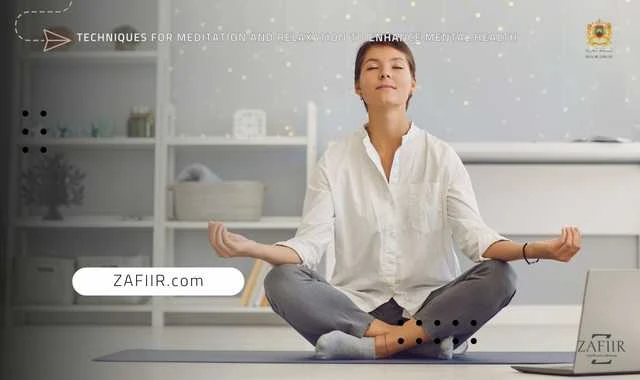Techniques for Meditation and Relaxation to Enhance Mental Health
Introduction:
In today's fast-paced world, it is essential to prioritize mental health. Stress, anxiety, and various mental health disorders have become prevalent, affecting individuals' overall well-being. However, there are effective techniques that can help improve mental health and promote a sense of calm and relaxation. This article will explore the benefits of meditation and relaxation techniques and how they can enhance mental well-being.
1. The Importance of Mental Health:
Before delving into specific techniques, it is crucial to understand the significance of mental health. Mental well-being is the foundation for a fulfilling and productive life. It affects our thoughts, emotions, and behavior, influencing our relationships, work performance, and overall quality of life. Neglecting mental health can lead to the development of various mental health disorders and hinder personal growth.
2. Understanding Meditation:
Meditation is a practice that involves training the mind to focus and redirect thoughts. It has been used for centuries to promote relaxation and spiritual growth. However, its benefits extend beyond the spiritual realm. Research has shown that regular meditation practice can positively impact mental health by reducing stress, anxiety, and depression. Additionally, it improves attention span, enhances self-awareness, and promotes emotional well-being.
3. Different Meditation Techniques:
a. Mindfulness Meditation: This technique involves focusing on the present moment and observing thoughts and sensations without judgment. It cultivates awareness and helps individuals let go of negative thoughts, reducing stress and promoting mental clarity.
b. Loving-Kindness Meditation: This practice involves directing feelings of compassion and love towards oneself and others. It fosters empathy, reduces self-criticism, and enhances overall well-being.
c. Transcendental Meditation: This technique involves silently repeating a mantra to achieve a state of relaxed awareness. It promotes deep relaxation, reduces anxiety, and improves cognitive function.
4. Relaxation Techniques:
In addition to meditation, incorporating relaxation techniques into daily routines can significantly benefit mental health.
a. Progressive Muscle Relaxation: This technique involves systematically tensing and then relaxing each muscle group to release physical and mental tension. It promotes relaxation and helps alleviate symptoms of anxiety and insomnia.
b. Deep Breathing Exercises: Deep, diaphragmatic breathing activates the body's relaxation response and reduces stress. By focusing on slow, deep breaths, individuals can calm their minds and promote a sense of peace and tranquility.
c. Guided Imagery: This technique involves using imagination to create calming mental images. By visualizing peaceful and serene scenes, individuals can reduce anxiety and induce a state of relaxation.
Conclusion:
Incorporating meditation and relaxation techniques into daily life can have profound benefits for mental health. Whether it is through mindfulness meditation, progressive muscle relaxation, or deep breathing exercises, these practices promote stress reduction, enhance self-awareness, and foster emotional well-being. By prioritizing mental health and dedicating time to these techniques, individuals can experience improved overall well-being and lead happier, more fulfilling lives. Remember, a healthy mind is the foundation for a healthy life.

